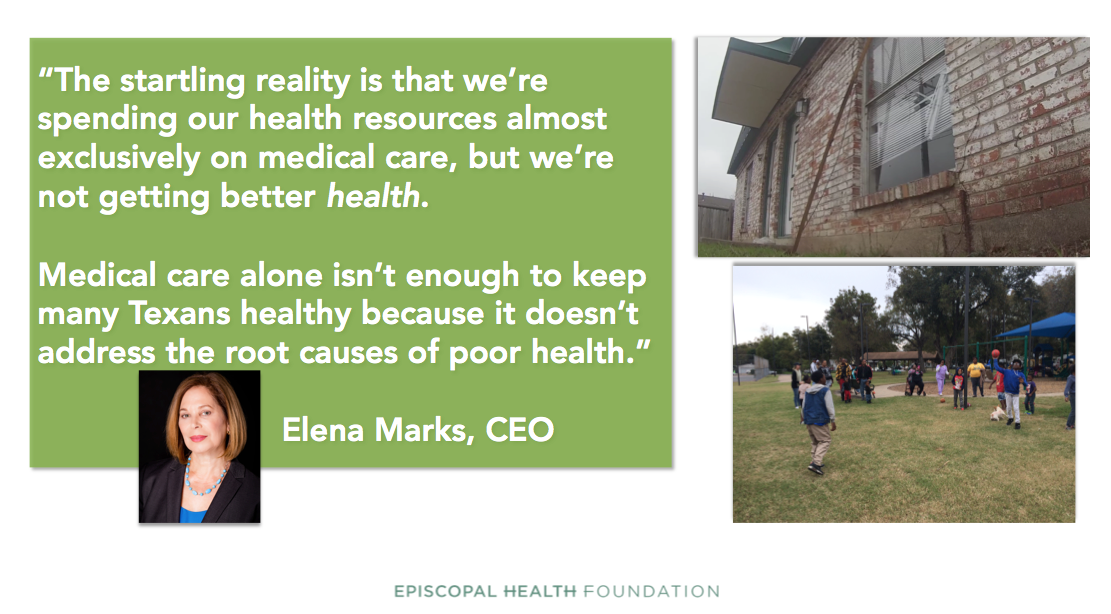
EHF and Dell Medical School at The University of Texas at Austin have announced a partnership to discover and advance health interventions outside of clinical settings that address underlying, non-medical causes of poor health.
The goal of the new Factor Health program is to transform the most promising efforts into successful cost-effective initiatives that measurably improve health. EHF will invest $2.6 million in Factor Health over three years.
Research shows that as much as 80-90 percent of our health is determined by non-medical factors such as smoking, access to healthy food, housing and transportation — also known as social determinants of health. That means only 10-20 percent of our health relates directly to health care, where the vast majority of health-focused dollars are spent.

“Many innovative organizations are already reaching beyond clinics to tackle these non-medical drivers of health, but it’s a challenge to find healthcare payers to support them.” said Marks. “This effort works to find solutions that work outside the exam room and are proved to be cost-effective and lead to better health.”
Supported by EHF’s
$2.6 million investment, Factor Health will:
- Solicit innovative proposals from organizations working to advance non-medical drivers of health (initially in Austin and Travis County, followed by expansion to include Harris and other counties).
- Invest to improve the proposals over several months by leveraging expertise from across the country to raise the chances of improving health outcomes.
- Provide funding for two years to the programs most likely to be funded by long-term healthcare payers.
- Match the most viable programs with longer-term payers to ensure financial sustainability.
“We know that non-medical drivers play an outsized role in influencing health outcomes, but that’s not where we are investing resources,” said Mini Kahlon, Ph.D., Dell Med’s vice dean for the health ecosystem and associate professor of population health. “This strategic partnership addresses that imbalance by bringing ideas together with expertise and funding to drive better health outcomes, particularly for those who are underinsured and uninsured.”
Although there is no set criteria regarding the type of organization or business that can apply, organizers say they expect interest from those with a history of delivering value and services to historically underserved groups and from groups with a proven track record of delivering results in relevant areas such as transportation, housing, education and food.
Examples of initiatives that could receive support through the program include an affordable housing organization providing wraparound services to support health at home, an entity delivering non-medical diabetes prevention services such as diet and exercise coaching, or a group addressing loneliness and social isolation through exercise and community building.
As the program evolves, a select number of proposals will enter a consultation phase. During this time, a customized team of experts will provide guidance on ways to improve interventions to ensure sustainable funding and maximize opportunities for overall success.
For more information about Factor Health, including more details on target populations, key dates and how to be a part of the learning community that develops alongside this program, click here.
